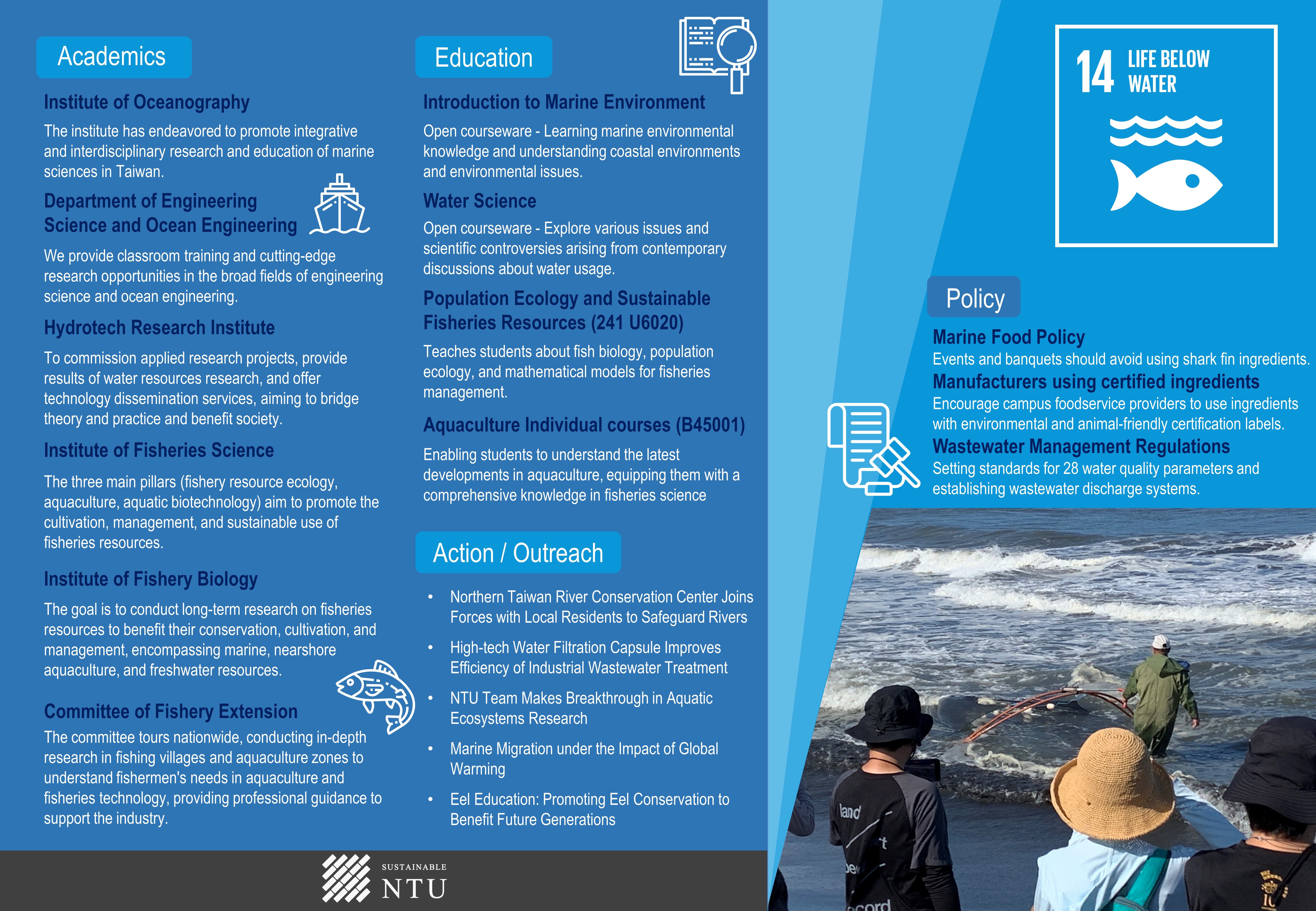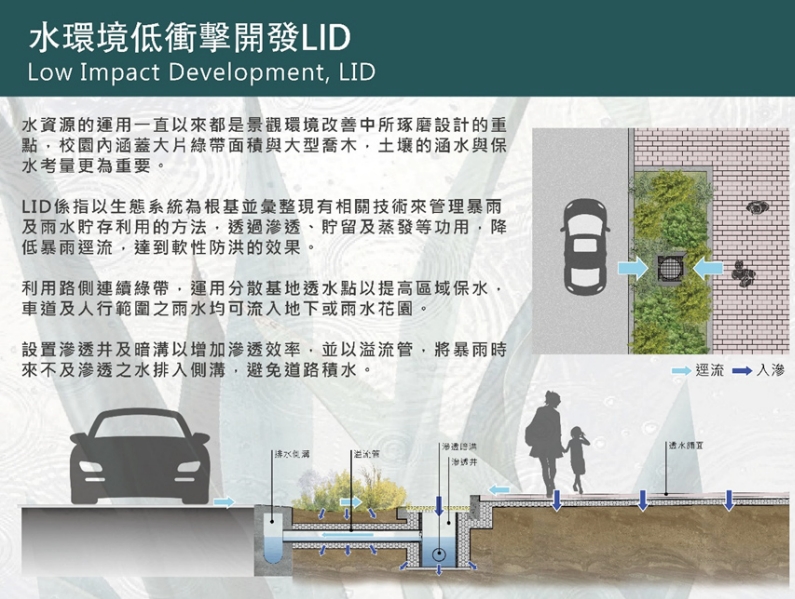NTU is dedicated to minimizing alteration of aquatic ecosystems
National Taiwan University is committed to minimizing its impact on aquatic ecosystems. Through the Campus Blue Ribbon Project, the university integrates the campus landscape with natural water systems, employing Low Impact Development (LID) techniques. This initiative is gradually implemented in different zones, such as the East and Southeast zones, connecting them to create an ecological network. The goal is to create a diverse, waterfront landscape with open spaces on the campus.
In addition to these efforts, the university conducts outreach activities on campus, sharing information on marine conservation and water quality safety to reduce the human impact on aquatic ecosystems. Furthermore, NTU boasts several specialized research teams, including the Institute of Oceanography, Department of Engineering Science & Ocean Engineering, Institute of Fishery Biology, and Hydrotech Research Institute. These teams engage in research related to marine, lake, river, and wetland ecosystems, contributing to the understanding and conservation of aquatic environments.

NTU Blue Ribbon Project
Our university has initiated the NTU Blue Ribbon Project, which integrates the natural water systems on campus with new building projects. Through a comprehensive approach encompassing points, lines, and areas, this initiative interconnects water systems into an ecological network, creating a diverse, waterfront landscape and open spaces within the campus. The Blue Ribbon Project also includes plans to utilize the water systems for regulating microclimates, reducing heat radiation, flood prevention, disaster mitigation, and fostering natural biodiversity. Additionally, the project incorporates Low Impact Development (LID) techniques for stormwater management and rainwater harvesting.


Project on Marine Ecological Migration in the Face of Global Warming
Global warming has led to an increase in sea temperatures, forcing fish populations to leave their original habitats and gradually migrate towards polar regions. This phenomenon is observable in various marine regions within biogeographic transition zones. Our research team from the Department of Oceanography at our university investigates the impact of seabed habitats and sea temperature on the distribution of reef fish species within these biogeographic transition zones. This research aims to inform the development of strategies for preventing changes in marine ecosystems.





